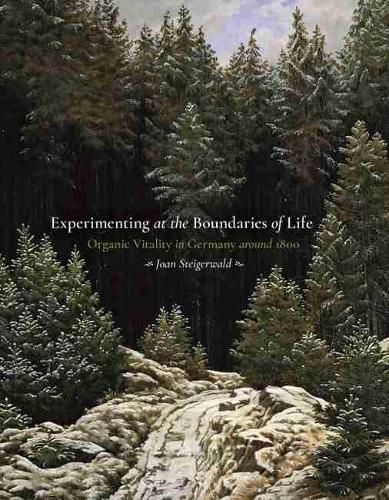Readings Newsletter
Become a Readings Member to make your shopping experience even easier.
Sign in or sign up for free!
You’re not far away from qualifying for FREE standard shipping within Australia
You’ve qualified for FREE standard shipping within Australia
The cart is loading…






Attempts to distinguish a science of life at the turn of the nineteenth century faced a number of challenges. A central difficulty was clearly demarcating the living from the nonliving experimentally and conceptually. The more closely the boundaries between organic and inorganic phenomena were examined, the more they expanded and thwarted any clear delineation. Experimenting at the Boundaries of Life traces the debates surrounding the first articulations of a science of life in a variety of texts and practices centered on German contexts. Joan Steigerwald examines the experiments on the processes of organic vitality, such as excitability and generation, undertaken across the fields of natural history, physiology, physics and chemistry. She highlights the sophisticated reflections on the problem of experimenting on living beings by investigators, and relates these epistemic concerns directly to the philosophies of nature of Kant and Schelling. Her book skillfully ties these epistemic reflections to arguments by the Romantic writers Novalis and Goethe for the aesthetic aspects of inquiries into the living world and the figurative languages in which understandings of nature were expressed.
$9.00 standard shipping within Australia
FREE standard shipping within Australia for orders over $100.00
Express & International shipping calculated at checkout
Attempts to distinguish a science of life at the turn of the nineteenth century faced a number of challenges. A central difficulty was clearly demarcating the living from the nonliving experimentally and conceptually. The more closely the boundaries between organic and inorganic phenomena were examined, the more they expanded and thwarted any clear delineation. Experimenting at the Boundaries of Life traces the debates surrounding the first articulations of a science of life in a variety of texts and practices centered on German contexts. Joan Steigerwald examines the experiments on the processes of organic vitality, such as excitability and generation, undertaken across the fields of natural history, physiology, physics and chemistry. She highlights the sophisticated reflections on the problem of experimenting on living beings by investigators, and relates these epistemic concerns directly to the philosophies of nature of Kant and Schelling. Her book skillfully ties these epistemic reflections to arguments by the Romantic writers Novalis and Goethe for the aesthetic aspects of inquiries into the living world and the figurative languages in which understandings of nature were expressed.